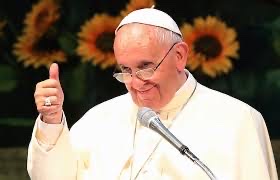Canons 1385 and 1399 - On the Prohibition of Books
Kurgan must have missed Canons 1385 and 1399. They are the canons that deal with the publishing of books. They describe the topics that cannot be written about, and who must approve them (bold added):
Canon 1385
§ 1. Unless ecclesiastical censorship has preceded, there shall not be published, even by laity:
1. ° Books of sacred Scripture or annotations on them or commentaries;
2. ° Books that look to divine Scriptures, sacred theology, ecclesiastical history, canon law, natural theology, and ethics and other religious and moral disciplines of this sort; books and booklets of prayers, devotions, and teaching or religious instruction on morals, ascetics, mysticism and other [topics] of this sort, even though they seem conducive to fostering piety; and generally those writings in which there is something of special import to religion and right living;
3. ° Sacred images no matter how printed, whether they are published with prayers added or without them.
§ 2. Permission for publishing books and images mentioned in § 1 can be given by the Ordinary of the place of their author, or by the Ordinary of the place in which the books or images are going to be published, or by the Ordinary of the place in which they are printed,
although if one of the Ordinaries denied permission, the author cannot petition another unless he makes him aware of the denial of
permission from the other.
Canon 1399
By the law, [the following] are prohibited:
1. ° Original text editions or ancient versions of Catholic sacred Scripture, even of the Oriental Church, published by any non-
Catholic; and likewise versions [of these], in any language, by these [same sort] prepared or published;
2. ° Books of any writers propagating heresy or schism, or attacking in any way the basis of religion;
3. ° Books by design striking against religion and good morals;
4. ° Books by any non-Catholics treating purposely of religion, unless it can be shown that nothing contained in them is contrary to the Catholic faith;
5. ° Books mentioned in Canon 1385, § 1, n. 1, and Canon 1391; likewise all those mentioned in the cited Canon 1385, § 1, n. 2, [and] books and booklets that describe new apparitions, revelations, visions, prophecies, and miracles, or that lead to new devotions, even under the pretext of being private, if they have not been published in accord with the prescriptions of the canons;
6 . ° Books attacking or deriding any Catholic dogma, or protecting errors proscribed by the Holy See, or detracting from divine cult, or arguing for the avoidance of ecclesiastical discipline, or bringing about opprobrium on religion or the clerical state;
7. ° Books that teach or recommend superstition in general, sorcery, divination, magic, evoking of spirits, and other things of this sort;
So, the 1917 Code saw Kurgan coming from a mile away. No one is allowed to write books that look to (and interpret) Canon Law (Canon 1385), or bring about opprobrium (disgrace) to the CLERICAL STATE (Canon 1399). Kurgan’s sedevacantist theory attempts to bring disgrace to almost all the clergy!
NOT ALLOWED
That’s unless he got permission from his local Bishop, which is obvious he did not. I’m just pointing out that kurgan “love” of the 1917 Code does not go passed the very limited canons that has read, and that he misinterprets to suggest his heretical views.
Who approved your books Kurgan?

Comments
Post a Comment